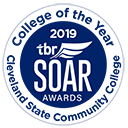Gainful Employment
Introduction
In 2010, the U.S. Department of Education (“Department” or “DOE”) proposed a host of new regulations for higher education program integrity and student aid (“Program Integrity Rules”) intended to curb perceived abuses of taxpayer money and protect unwary students. The publication of these rules followed a contentious round of negotiated rulemaking—during which the federal government consulted with constituents to draft or revise new rules—held by the Department from late 2009 to early 2010. Since their publication, the Program Integrity Rules have generated unprecedented public comment and have elicited a lawsuit from the Association of Private Sector Colleges and Universities seeking to block portions of the regulations. Despite the controversy, however, all but one of the Program Integrity Rules were finalized in the fall of 2010, and colleges and universities must comply with the new requirements beginning July 1, 2011.
In all, there are fourteen areas of program integrity addressed by the Department’s new regulations. Outlined below are the five rules with greatest significance for NACUA’s public and nonprofit institutional members: (1) credit hours; (2) gainful employment; (3) incentive compensation; (4) misrepresentation; and (5) state authorization. Additional resources on the Program Integrity Rules are available on NACUA’s website, www.nacua.org.
Gainful Employment Program Disclosure Forms
- Accounting - 52.0201
- Administrative Professional Technology (APT) - 52.0401
- Agribusiness - 01.0102
- Architectural Design - 15.1303
- Business and Management - 52.0201
- Civil Technology - 15.0201
- Climate Control - 15.0505
- Computer Business Applications - 52.0204
- Construction Applications - 46.0415
- Construction Surveying - 46.0415
- Customer Service - 52.0204
- Early Childhood Certificate - 19.0706
- Electrical Fundamentals - 15.0303
- Electrical Maintenance Fundamentals - 15.0303
- Emergency Medical Tech - Adv - 51.0904
- Emergency Medical Tech - Basic - 51.0904
- Law Enforcement Training - 43.0107
- Mechanical Drafting - 15.1306
- Mechanical Maintenance Fundamentals - 15.0805
- Mechatronics Level 1 - 15.0403
- Network Systems Design - 11.0901
- Paramedic - 51.0904
- Process Control Fundamentals - 41.0303
- Welding Technology - 48.0505
- Zero Energy Housing - 15.0503
Gainful Employment Requirements
Background and Purpose
In order to be eligible for funding under Title IV of the HEA, an educational program must lead to a degree (associate, bachelor’s, graduate, or professional) or prepare students for “gainful employment in a recognized occupation.” In addition, virtually all programs—degree and non-degree—offered by proprietary institutions must prepare students for “gainful employment in a recognized occupation.” Collectively, these programs are referred to as “GE Programs.” More than 5,000 out of approximately 6,000 institutions participating in Title IV programs have GE Programs.
Concerned about schools that provide no value for the money, the Department of Education in the summer of 2010 proposed new regulations which would define “gainful employment” for the first time and require schools to publicize information about programs required to lead to gainful employment. These gainful employment regulations have been the subject of a long discussion and enormous amount of public comment that has caused significant delays in the rules’ release.
The first set of final gainful employment regulations was published on October 29, 2011 and establishes reporting and disclosure requirements for current programs, as well as the need for prior Department approval of new programs (see First Set of Gainful Employment Regulations below—Reporting, Disclosures, and New Program Approvals below).
Eligibility and Impact
For both domestic and foreign public and nonprofit institutions, GE Programs include the following:
- Non-degree programs, including all certificate programs that last one or more academic years. These include undergraduate, post-baccalaureate, graduate, and postgraduate certificate programs, but do not include certificates received as part of a degree program.
- Teacher certification programs that result in a certificate awarded by the institution.
- Approved “Comprehensive Transition Programs” for students with intellectual disabilities.
For both domestic and foreign public and nonprofit institutions, the following are not considered GE Programs:
- Programs that lead to a degree, including associate’s, bachelor’s, graduate, and professional degrees.
- Programs that are at least two years in length that are fully transferable to a bachelor’s degree program.
- Teacher certificate programs where the institution provides a collection of coursework necessary for the student to receive a state professional teaching credential or certification.
- Preparatory courses of study that provide coursework necessary for enrollment in an eligible program.
Disclosure Requirements for Current GE Programs
Institutions must also disclose certain information about each of their GE programs to prospective students, including in promotional materials available to prospective students and on institutional websites. These disclosures must begin no later than July 1, 2011.
- The name and U.S. Department of Labor’s Standard Occupational Classification (SOC) code of the occupations that the program prepares students to enter, along with links to occupational profiles on the U.S. Department of Labor’s O*NET Website or its successor site (note that if the number of occupations exceeds ten, the institution may provide web links to a representative sample);
- The on-time graduation rate for students completing the program;
- The tuition and fees the institution charges a student for completing the program in normal time;
- The typical costs for books and supplies (unless included as part of tuition and fees) and the cost of room and board, if applicable;
- The job placement rate for students completing the program and
- The median loan debt incurred by students who completed the program (separately by Title IV loans and by other educational debt to include both private educational loans and institutional financing), as provided by the Department.










